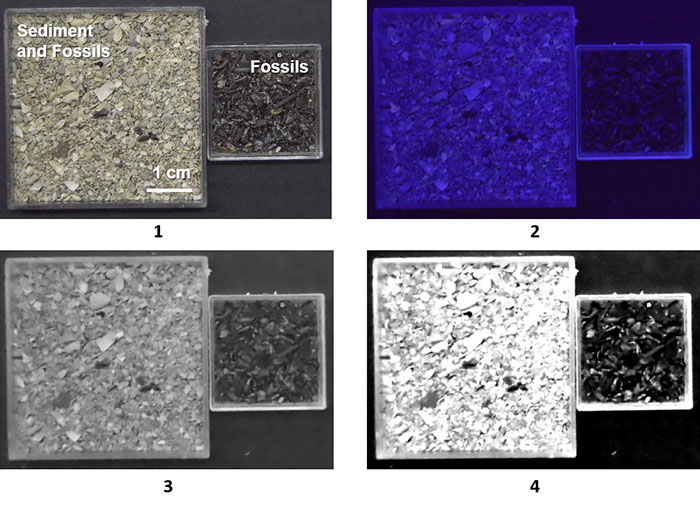FIGURE 1. 1, Wet sieving process of palaeontological samples using Freudenthal’s technique. 2, Visual recognition and separation of teeth and bones using a binocular microscope and pincers.

FIGURE 2. Experimental multispectral imaging system.

FIGURE 3.1, Reflectance spectra of sediment (sand and gravel) and fossils (bones and teeth) of Sample 1. 2, Fluorescence spectra (radiance in W/sr·cm 2) of sediment (sand and gravel) and fossils (bones and teeth) of Sample 1.

FIGURE 4. Examples of spectral images of Sample 1 through spectral bands (420, 520, 620, 670, and 720 nm) taken under daylight. An RGB image computed using the sRGB - standard RGB colour space is also provided.

FIGURE 5. Mixture of bones-teeth and sand-gravel from Sample 1. 1, RGB image under daylight (D65). 2, RGB image under UV light. 3, Blue channel image under UV light. 4, Green channel image (grayscale) under UV light. 5, Black and white image after segmentation of the green channel image.
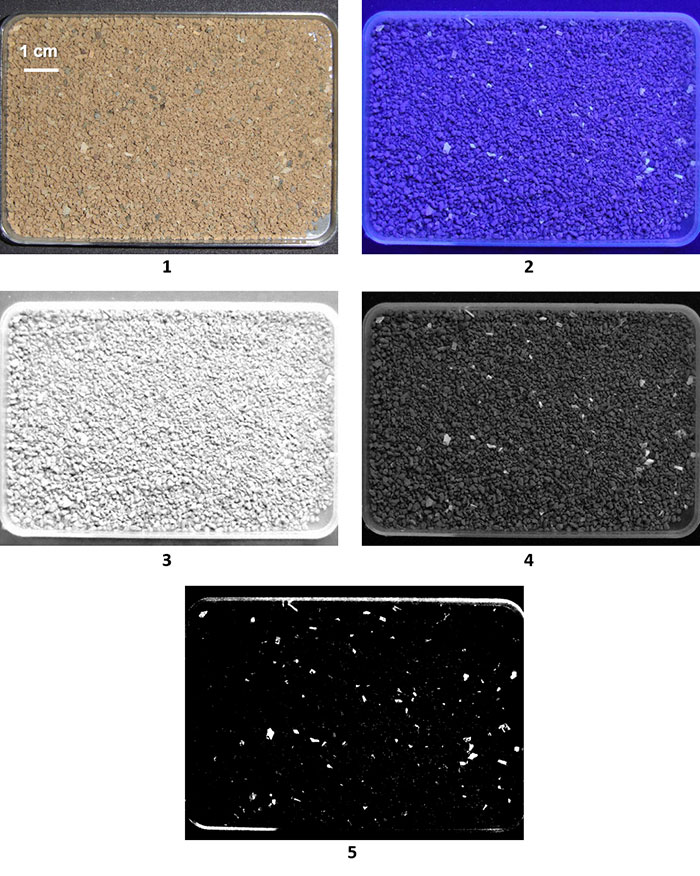
FIGURE 6.1, Reflectance spectra of sediment (sand and gravel), fossils (bones and teeth) and ferrous sediment of Sample 2. 2 , Fluorescence spectra (radiance in W/sr*cm 2) of sediment (sand and gravel), fossils (bones and teeth) and ferrous sediment of Sample 2.
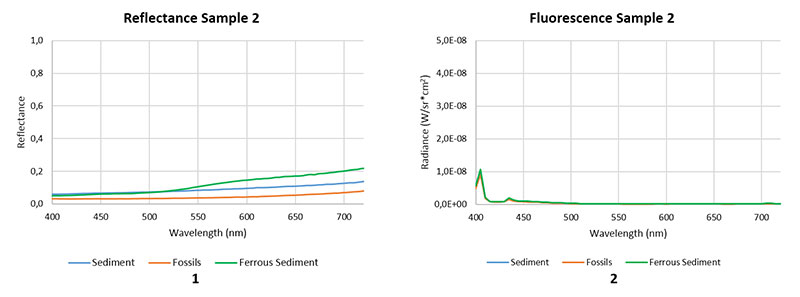
FIGURE 7. Examples of spectral images of Sample 2 through spectral bands (420, 520, 620, 670 and 720 nm) taken under daylight. An RGB computed using the sRGB - standard RGB colour space image is also provided.
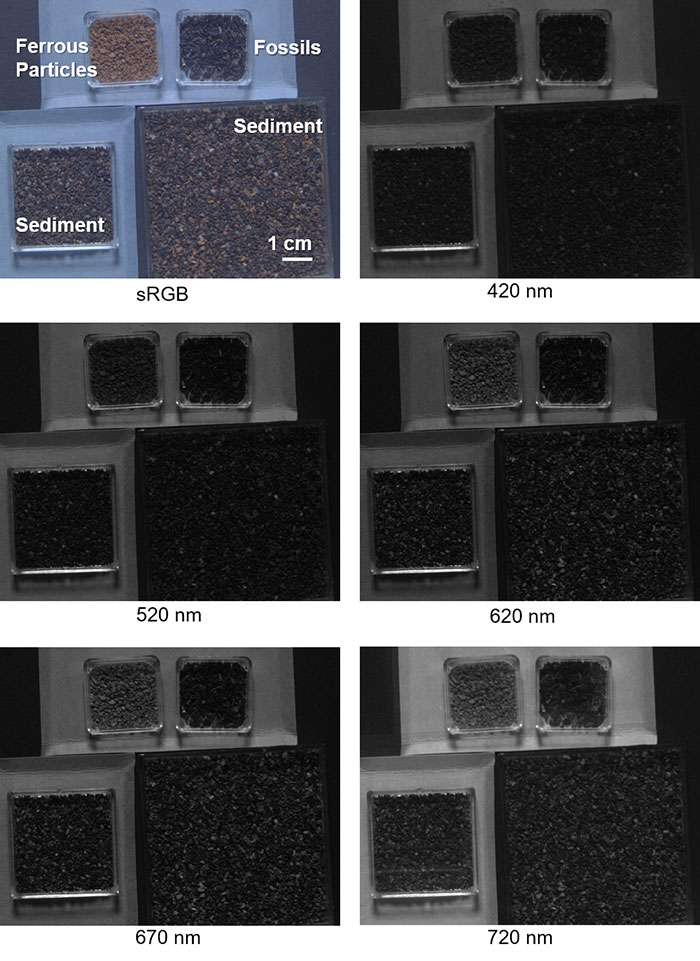
FIGURE 8. RGB images of Sample 2 with ferrous particles, bones-teeth, sand-gravel and a mixture of bones-teeth and sand-gravel. 1, Under daylight (D65). 2, Under UV Light.
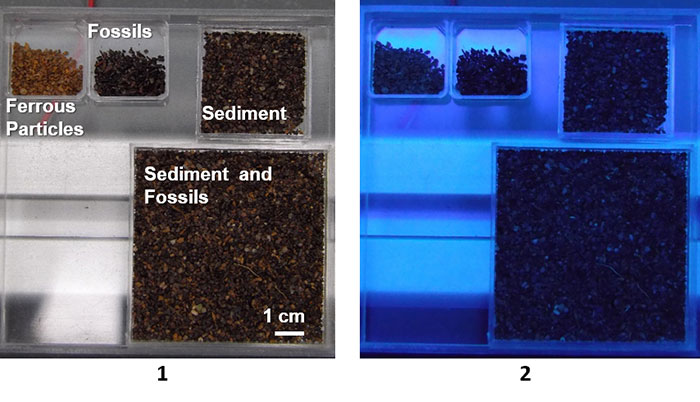
FIGURE 9. 1, Reflectance spectra of sediment (sand and gravel) and fossils (bones and teeth) of Sample 3. 2, Fluorescence spectra (radiance in W/sr*cm 2) of sediment (sand and gravel) and fossils (bones and teeth) of Sample 3.
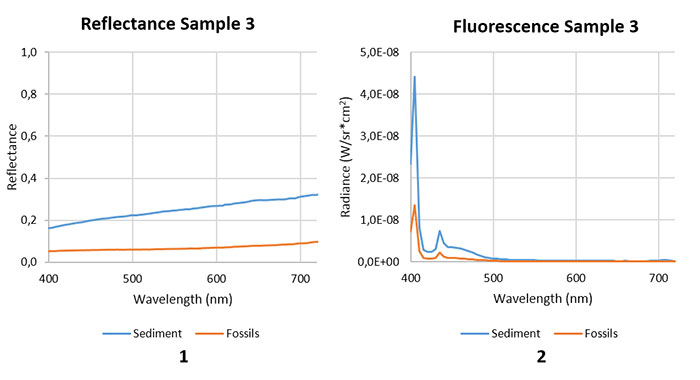
FIGURE 10. Examples of spectral images of Sample 3 through spectral bands (420, 520, 620, 670, and 720 nm) taken under daylight. An RGB computed using the sRGB - standard RGB colour space image is also provided.
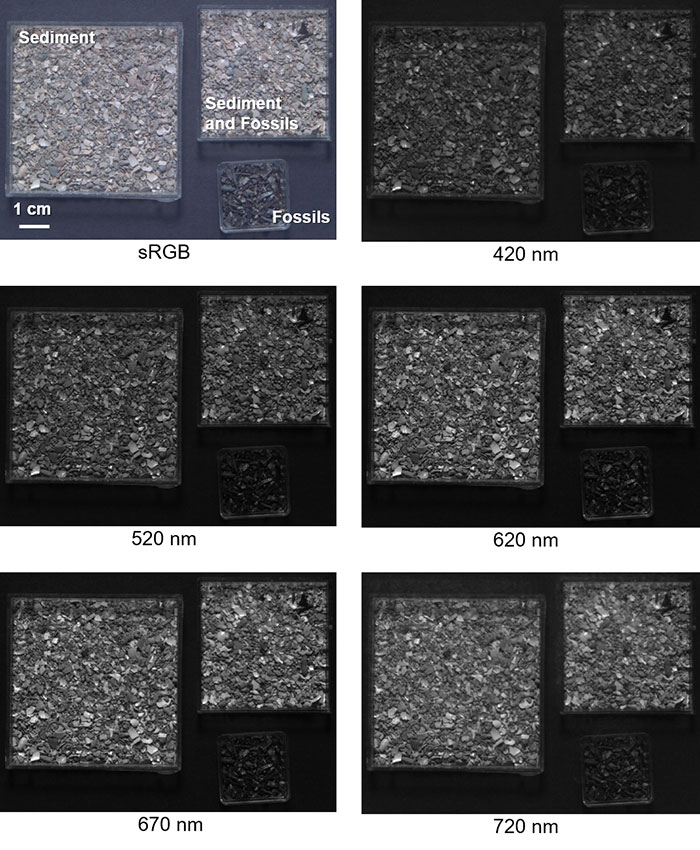
FIGURE 11. Fossils (bones and teeth) and a mixture of fossils and sediment (sand and gravel) from Sample 3. 1, RGB image under daylight (D65). 2, RGB image under UV light. 3, Blue channel image (grayscale) under UV light. 4, Black and white image after segmentation of the blue channel image.
